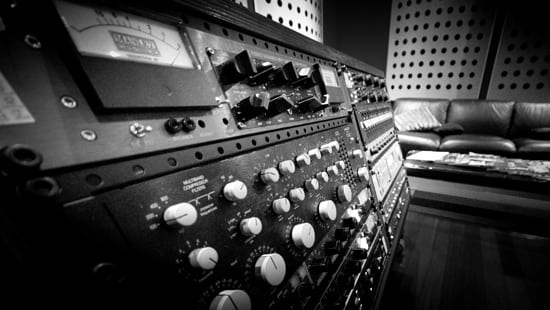by Harvey O’Sullivan
Mastering is an important step in the music production process, and perhaps the most misunderstood. Once you have your songs written and they are ready to be released to the world, the process could simplistically be represented as:
Recording/Tracking -> Mixing -> Mastering
The recording and mixing stages are fairly self explanatory, at the end of mixing you will have the final stereo mixdowns of your tracks, which often people think is the end of the music production line. You can play these mixes back on your car stereo, on your phone, on your computer, and they sound like a finished song. So what is the point of mastering?
A mix engineer will take the multi-tracked audio from the recording sessions and will focus on creating a coherent mix out of them. Mastering is about then taking that mix and optimising it for the destined playback format. Contrary to popular belief, it isn’t just “making it louder”.
Let’s say you record 10 songs for an album. When you arrange those songs into a sequence you might find, for example, that the songs vary in volume or that some have more treble than others. Mastering will smooth out the differences and make your album a coherent listening experience from start to finish.
Mastering engineers also make sure that your tracks will sound good on all range of speaker systems and playback methods, from the smallest iPod earbuds through to big PAs. Often what comes out of the mixdown stage might have an overload of sub-bass frequencies and uneven overall dynamics, or any number of potential issues. It might sound good on the speakers that they were mixed on but when listened to on different speakers in different rooms they do not sound as intended. Mastering engineers work in highly calibrated and precise listening environments to ensure that your tracks “translate” as evenly as possible on all playback systems.
Releasing music can sometimes be a confusing business. There are codes to take care of, like ISRCs and UPCs, and there are a variety of different formats to service such as DDPs, MFiTs and WAVs. A professional mastering studio will be able to guide you through this process and advise you on what’s right for your project.
But why do we have specialist mastering engineers for this? Why can’t it all be taken care of by the mix engineer?
The key is specialisation. Mastering has it’s own specific gear, a mastering console for example is very different to a online mixing console. A mastering suite has very distinct requirements different to that of a mixing room. While there may be considerable crossover in knowledge between mix and mastering engineers, gaining the experience and skills to operate the tools specific to mastering up to a professional standard takes time and dedication.
And yes, a mastering engineer will also be able to make your tracks bigger, louder and clearer.
Book in your mastering instantly online here
For more info contact:
Lynley White-Smith
Mastering Manager
mastering@studios301.com

